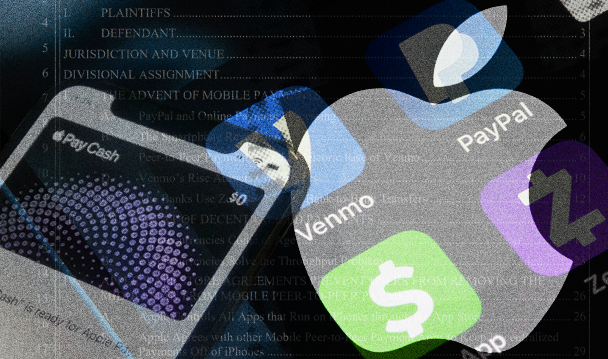
Apple Inc. is facing a class-action lawsuit initiated by Venmo and Cash App users, filed in a California District Court on November 17. The case alleges that Apple's control over iOS peer-to-peer (P2P) payment apps, particularly its restrictions on decentralized crypto tech, has increased user fees.
The complaint primarily centers around Apple's supposed agreements with payment platforms Venmo, Cash App, and Google Pay, which are owned by PayPal, Block (previously Square), and Google, respectively. Apple also operates its own P2P service, Apple Cash, which also primarily generates revenue through transaction fees.
The plaintiffs argue that these mirroring agreements restrict the integration of crypto technologies in iOS P2P payment apps, leading to inflated prices and stifling market competition.

The 58-page filing further details Apple's alleged use of both technological and contractual restraints to maintain dominance. This includes exclusive control over apps available through the AppStore and limitations imposed on web browser capabilities on Apple devices.
These measures allegedly give Apple considerable control over the installation and functioning of apps on iPhones and iPads, thereby establishing strict criteria for the introduction of new payment services.
The agreements with competitors like PayPal, Block, and Google are said to limit feature and price competition in the market. The plaintiffs say that the absence of Apple's restrictive practices would lead to greater innovation, such as using blockchain/cryptocurrency technology to reduce transaction costs, which is currently hindered, leading to high prices, few novel app features, and a lack of new entrants in the market.
The filing notes a pattern of continuously rising fees by Apple Cash, Venmo, and Cash App without a corresponding loss in market share. It highlights that when new products attempted to introduce features using blockchain technology, Apple simply removed these from its platform, enforcing the alleged agreements.
The four plaintiffs, hailing from New York, Hawaii, South Carolina, and Georgia, claim that these practices have led to a lack of competitive checks in the market, resulting in rising transaction fees and violating U.S. antitrust laws. They seek financial compensation for the alleged overcharging due to Apple's restrictive practices and injunctive relief to prevent Apple from continuing these anti-competitive practices. Furthermore, they request that Apple segregate or divest its Apple Cash business to mitigate further consumer harm.
This lawsuit marks a potential turning point in the tech sector, with possible implications for how leading platforms engage with new financial technologies, shaping the trajectory of mobile payments and the adoption of decentralized finance.
Last April, the Ninth Circuit Court of Appeals ruled in favor of Epic Games in a lawsuit against Apple. The court found Apple's restrictions on app distribution and in-app payment processing on iOS devices, and its limitations on developers communicating about alternative payment options, to be unfair according to California’s Unfair Competition Law.

